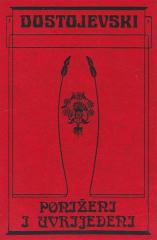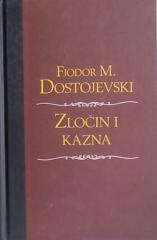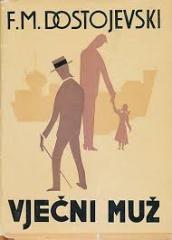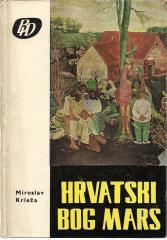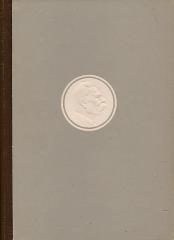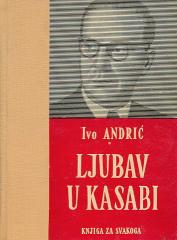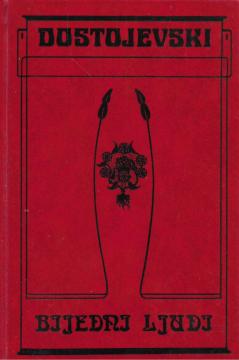
Bijedni ljudi / Dvojnik / Roman u devet pisama / Gospodin Proharčin / Gazdarica / Polzunkov / Slabo srce / Pošteni lopov / Božićno drvce i svadba / Tuđa žena i muž pod posteljom
Djela iz rane faze pokazuju interes Dostojevskog za psihologiju, društvenu kritiku i moralne dileme, postavljajući temelje za kasnija remek-djela. Na kraju knjige prilog Leonida Grosmana: Najvažniji datumi u životu i stvaralaštvu F. M. Dostojevskog.
Bijedni ljudi (1846), prvi roman, epistolarna je priča o Makaru Devuškinu, siromašnom činovniku, i Varvari Dobroselovoj, djevojci u nevolji. Kroz njihova pisma, Dostojevski prikazuje njihovu nježnu povezanost, ali i očaj siromaštva. Makarova dobrota kontrastira s okrutnošću društva, a tragičan kraj naglašava nemoć "malog čovjeka".
Dvojnik (1846) novela je o Goljadkinu, činovniku koji poludi susrevši svog dvojnika, identičnog, ali samouvjerenog i podmuklog. Dvojnik preuzima njegov život, dovodeći Goljadkina do paranoje i kolapsa. Djelo istražuje otuđenost, identitet i psihološku krizu, anticipirajući egzistencijalizam.
Roman u devet pisama (1847) satirična je priča o dvojici prevaranata, Pjotra i Ivana, koji se nadmudruju kroz pisma, planirajući prijevare. Dostojevski ismijava pohlepu i licemjerje, završavajući ironijom gdje obojica gube.
Gospodin Proharčin (1846) prikazuje škrtog činovnika Semjona koji živi u siromaštvu, skrivajući tajno bogatstvo. Nakon njegove smijeri. nešto se dogodi, otkriva se njegova opsesija novcem. Novela kritizira strah i dehumanizaciju u birokraciji.
Gazdarica (1847) mračna novela prati Ordionova, koji se zaljubi u Katerinu, ženu pod utjecajem starca Murina. Njezin unutarnji sukob i Ordionovljev zanos vode do tragičnog ishoda. Djelo istražuje strast, dominaciju i duhovni misterij.
Polzunkov (1848) humoristična priča o činovniku Osipu koji zabavlja društvo smišljajući laži o svojoj hrabrosti. Kroz ironiju, Dostojevski otkriva njegovu patnju i potrebu za prihvaćanjem.
Slabo srce (1848) prikazuje Vasju Šumkova, činovnika koji poludi od sreće nakon unapređenja i braka. Njegova nesposobnost da podnese radost vodi do tragičnog kraja, istražujući krhkost ljudske psihe.
Pošteni lopov (1848) priča je o Jemeljanu, pijancu koji krade, ali pokazuje iskrenost i kajanje. Njegova dobrota u patnji naglašava Dostojevskijevu vjeru u ljudskost.
Božićno drvce i svadba (1848) satira je o Julijanu, bogatašu koji na dječjem slavlju planira brak s djevojčicom radi njezina miraza. Djelo kritizira sebičnost i društvenu korupciju.
Tuđa žena i muž pod posteljom (1848) komična priča o ljubomornom Ivanu koji prati suprugu i zapetlja se u apsurdne situacije, skrivajući se pod krevetom. Dostojevski ismijava ljubomoru i društvene konvencije.
Nema primjeraka u ponudi
Poslednji primjerak je nedavno prodan.
